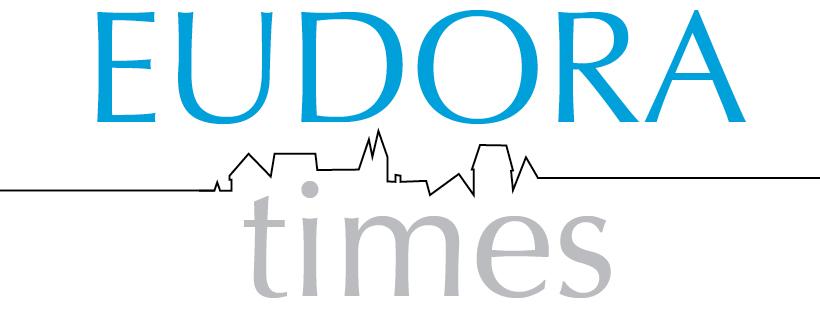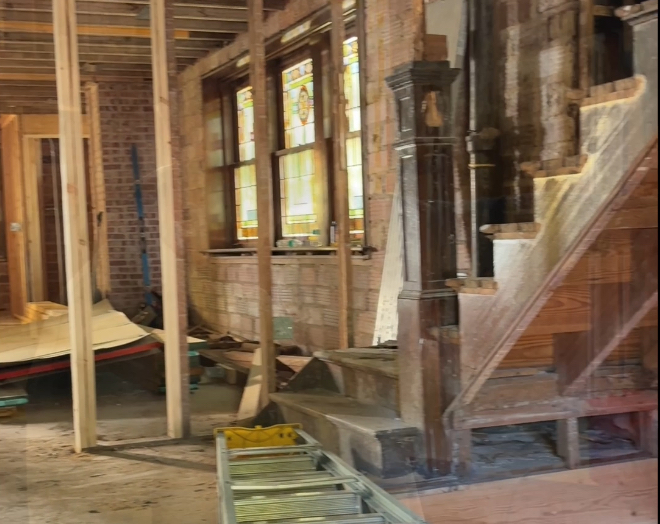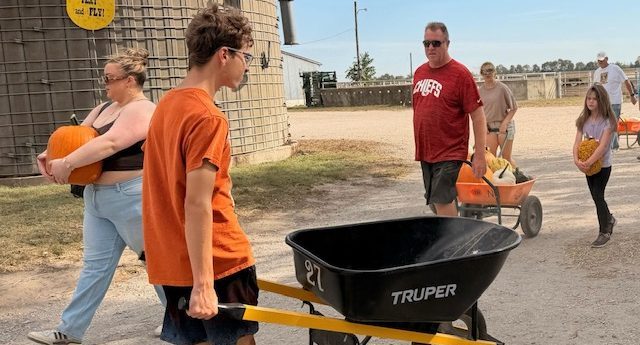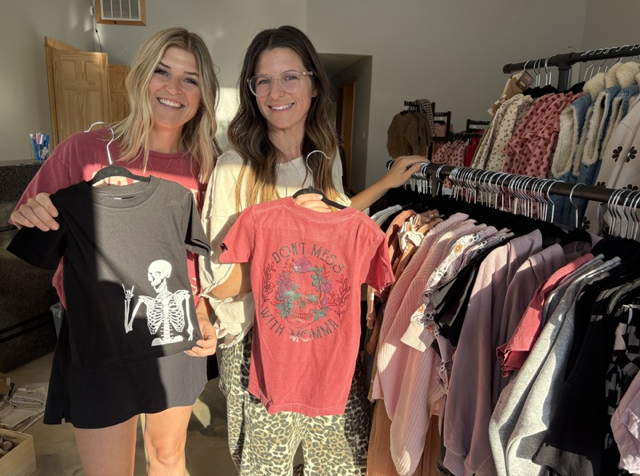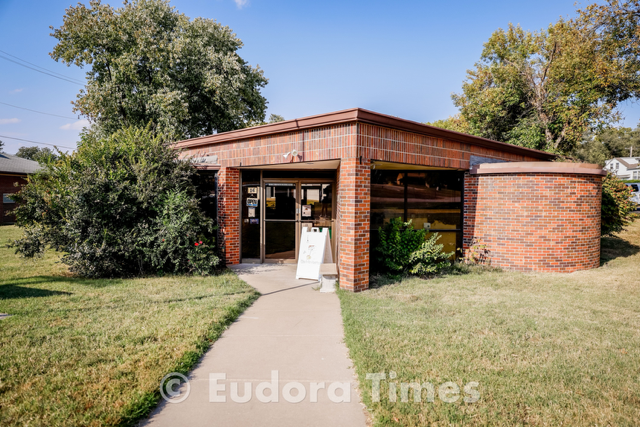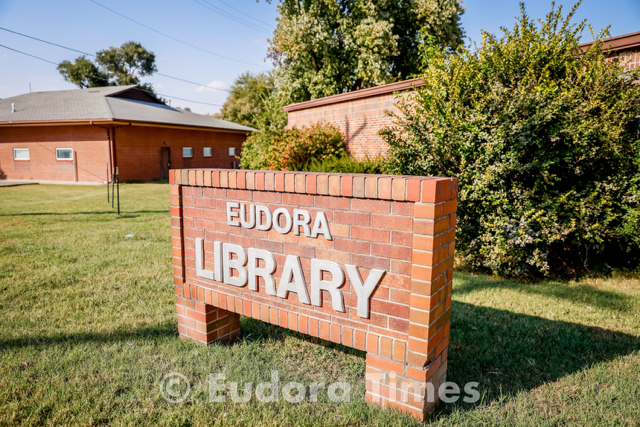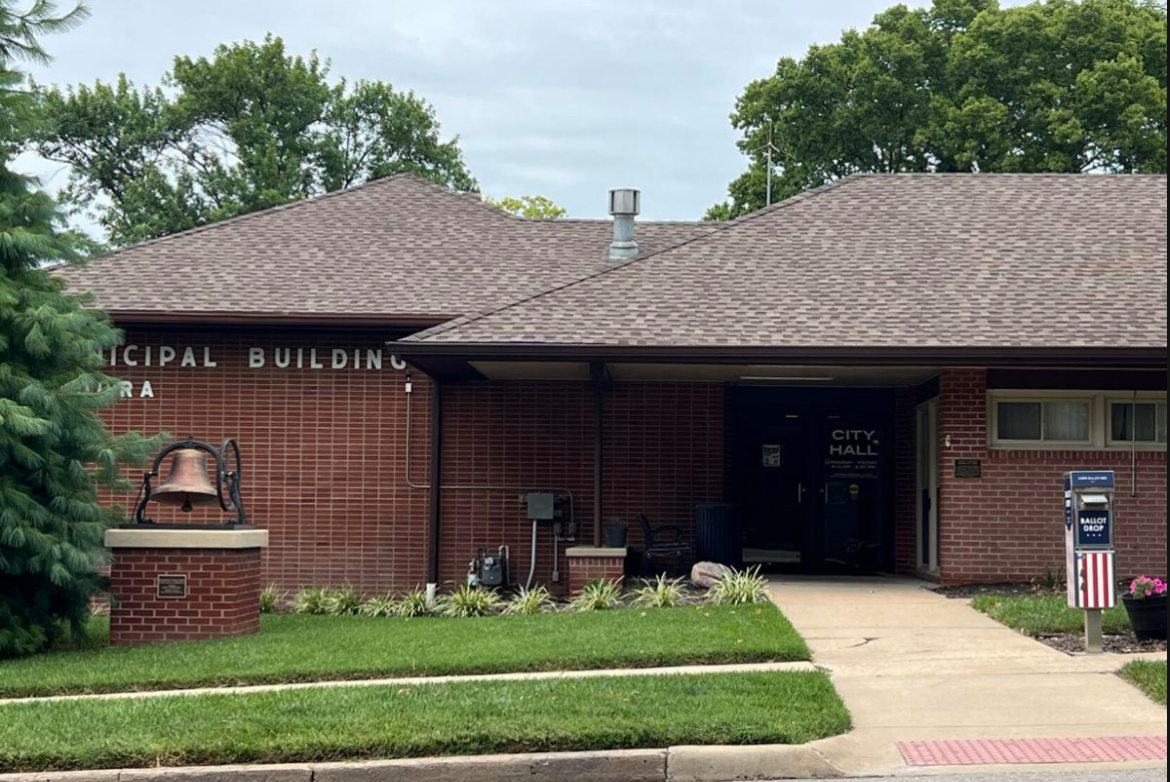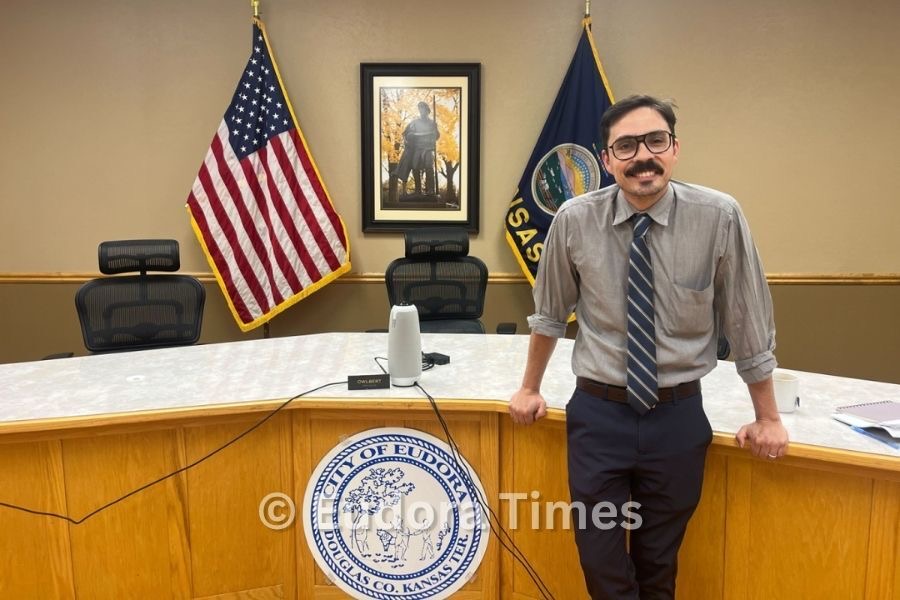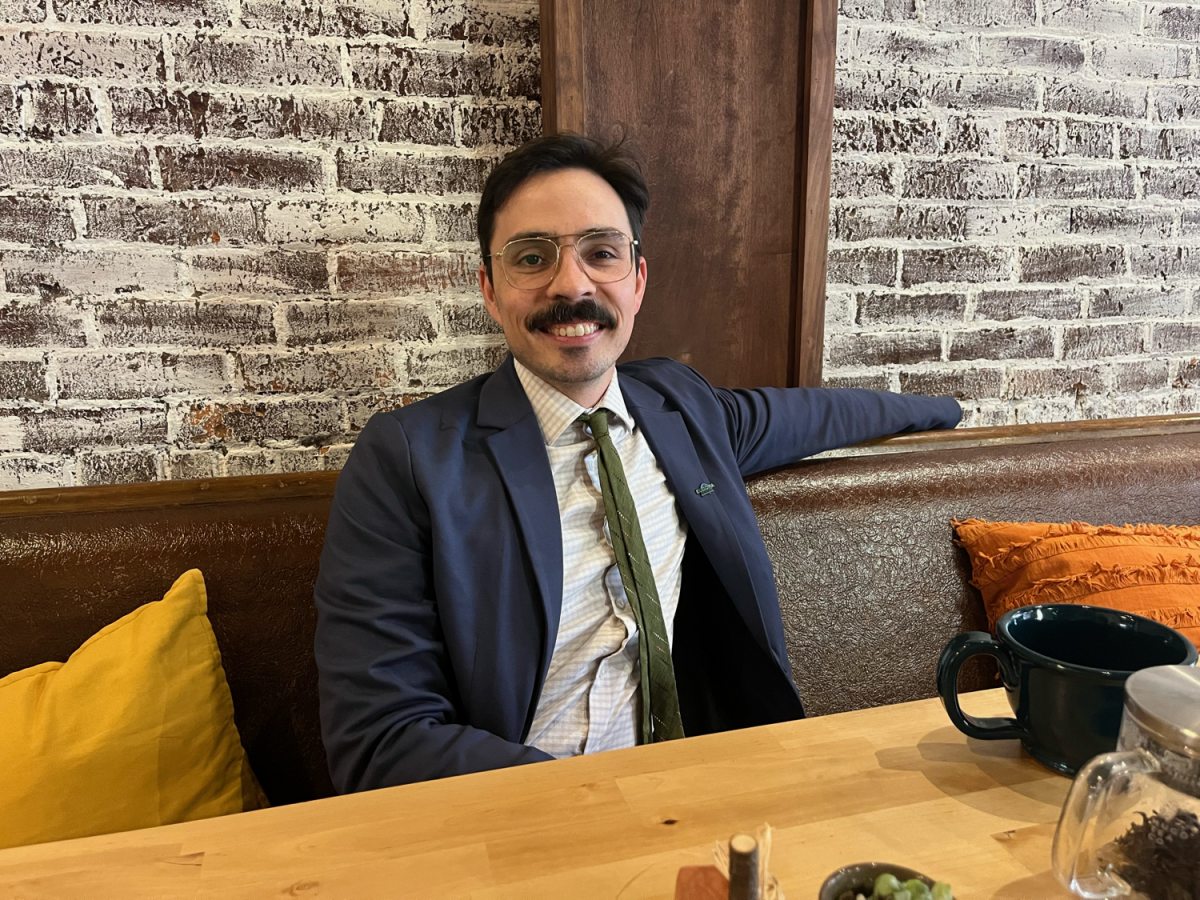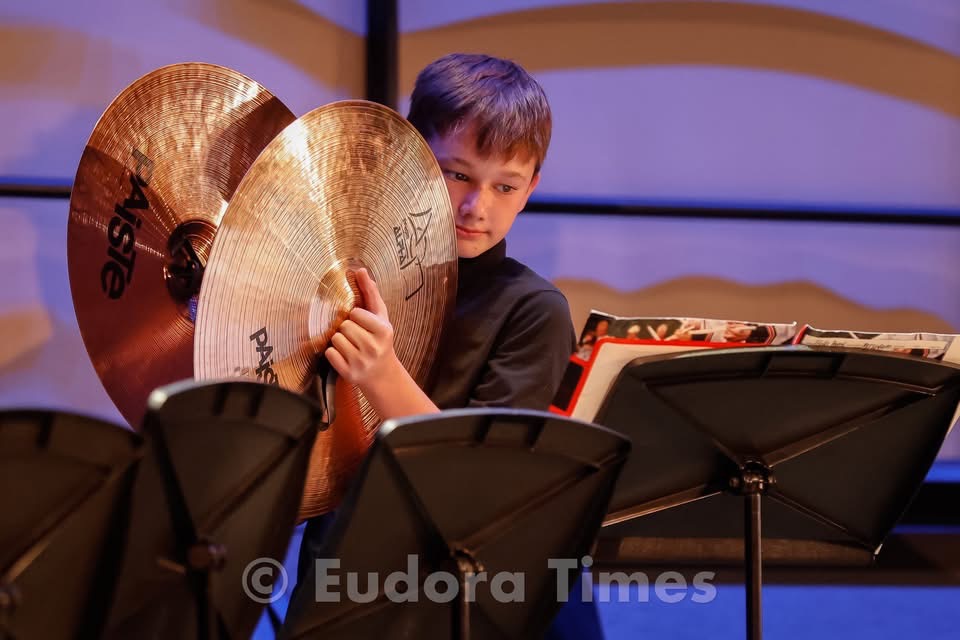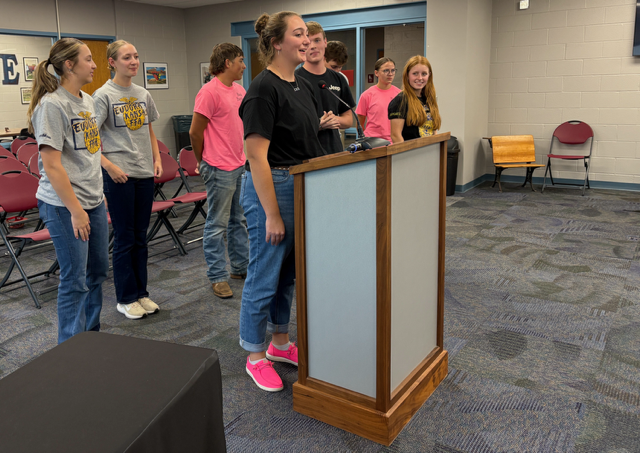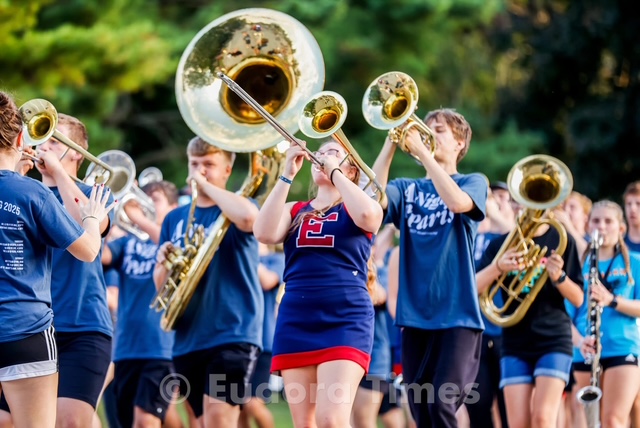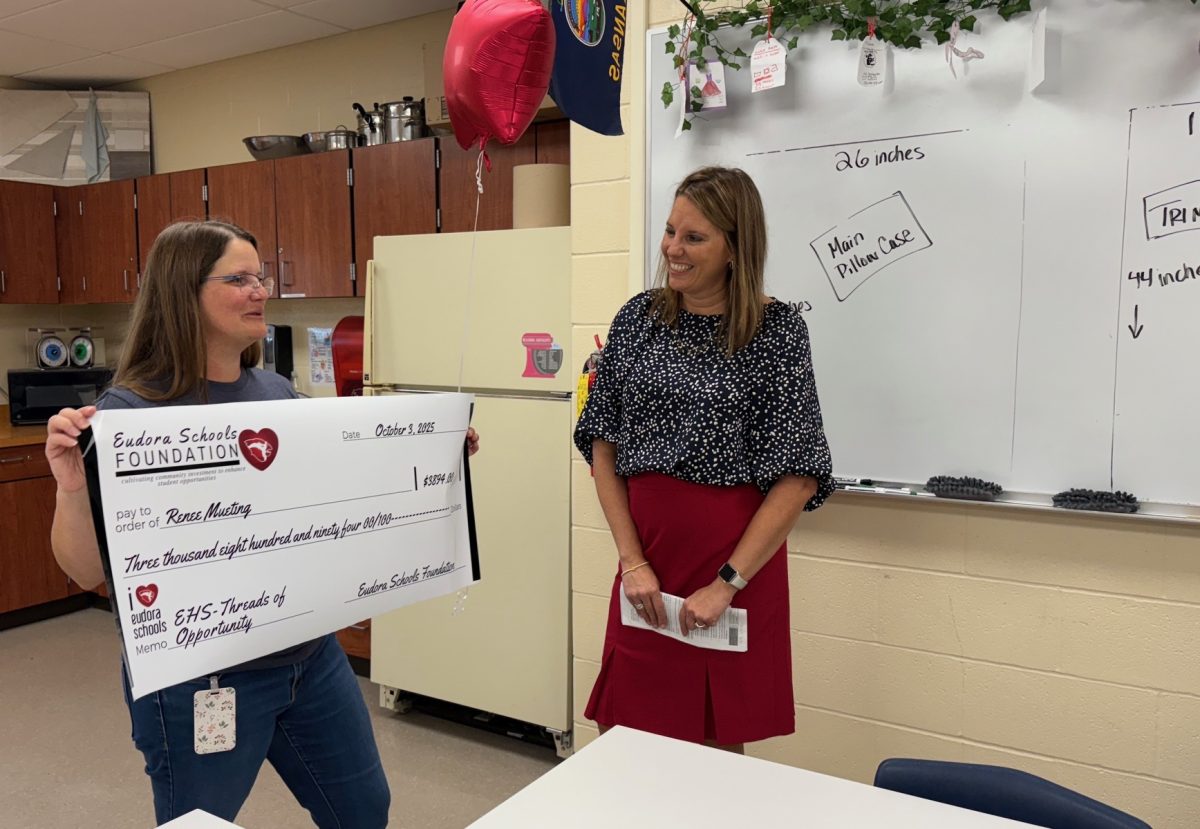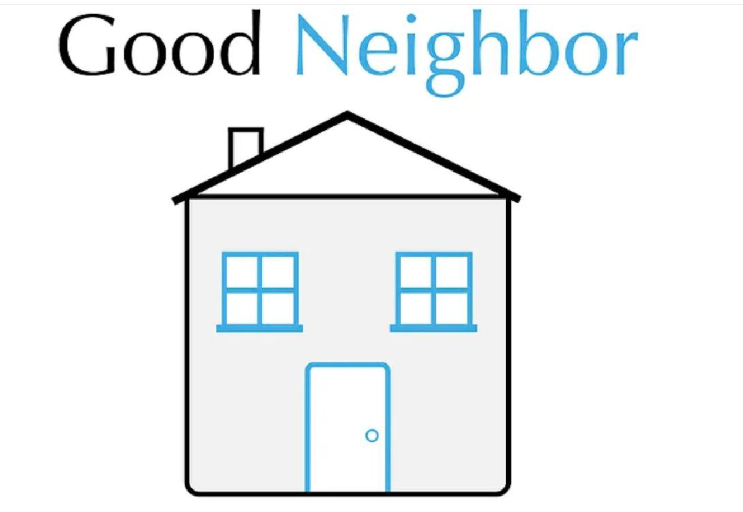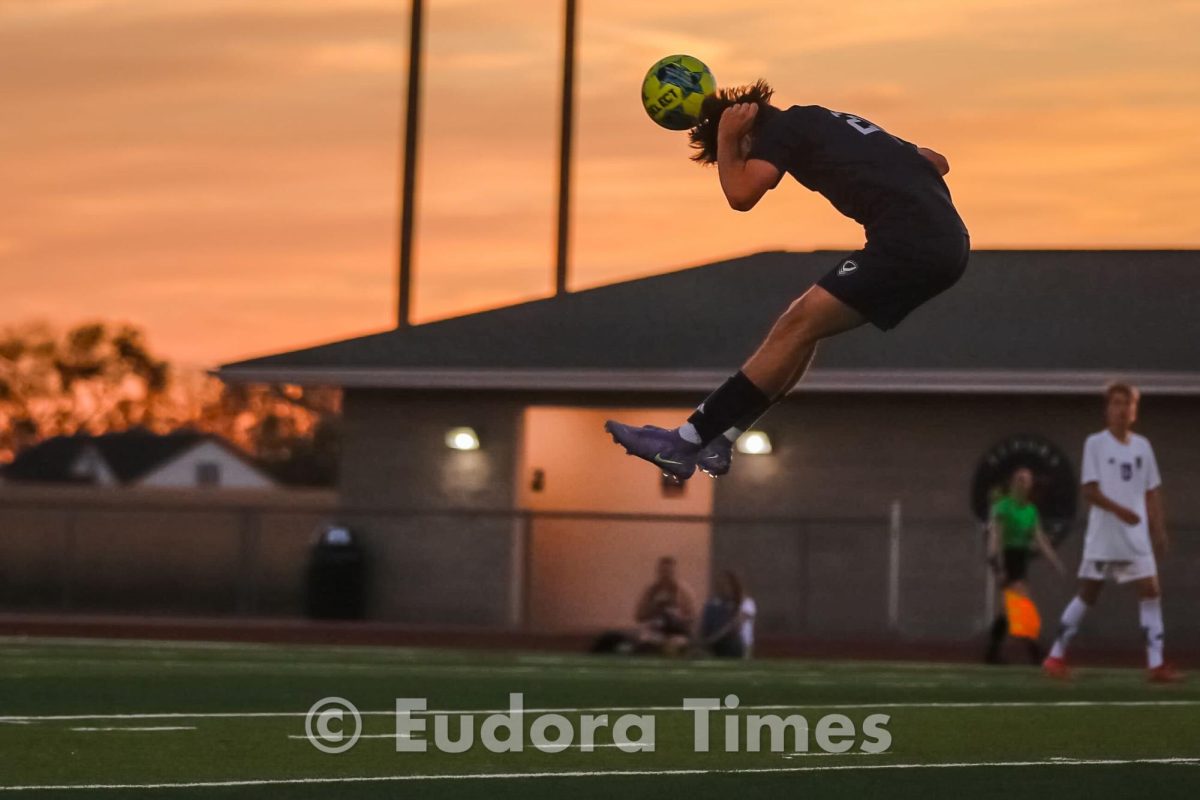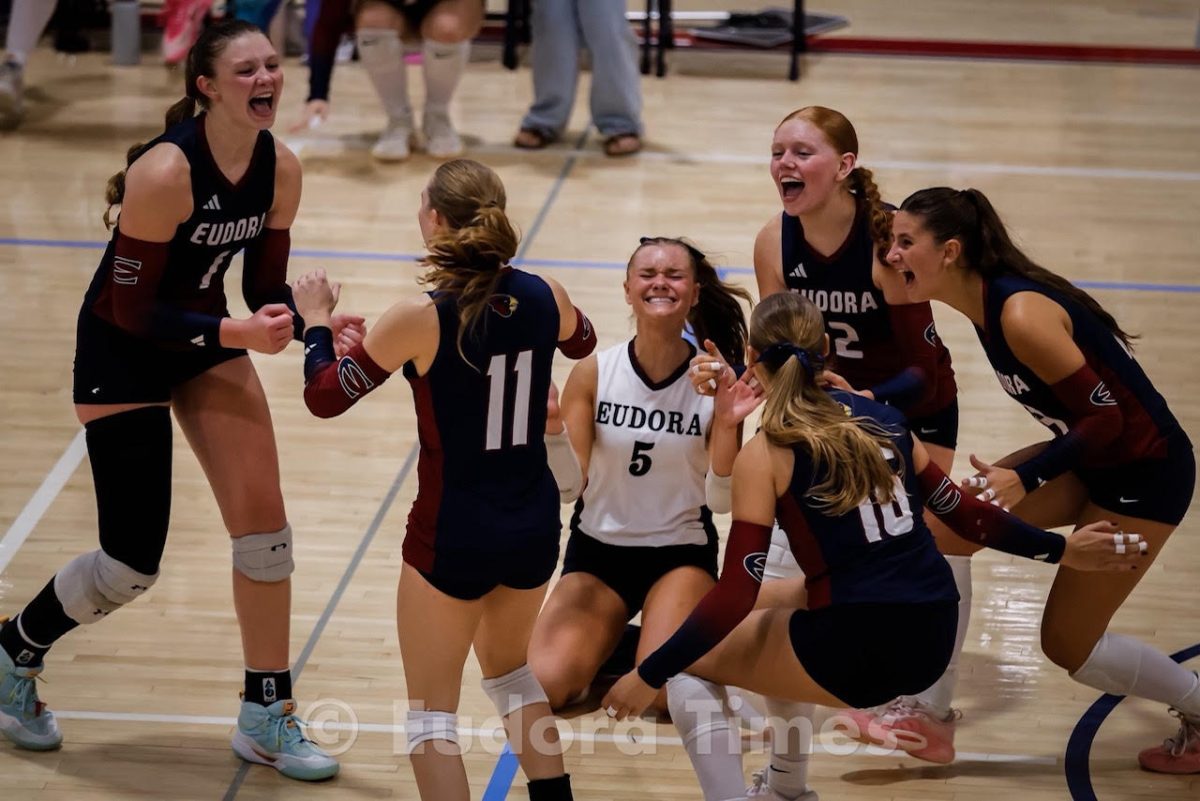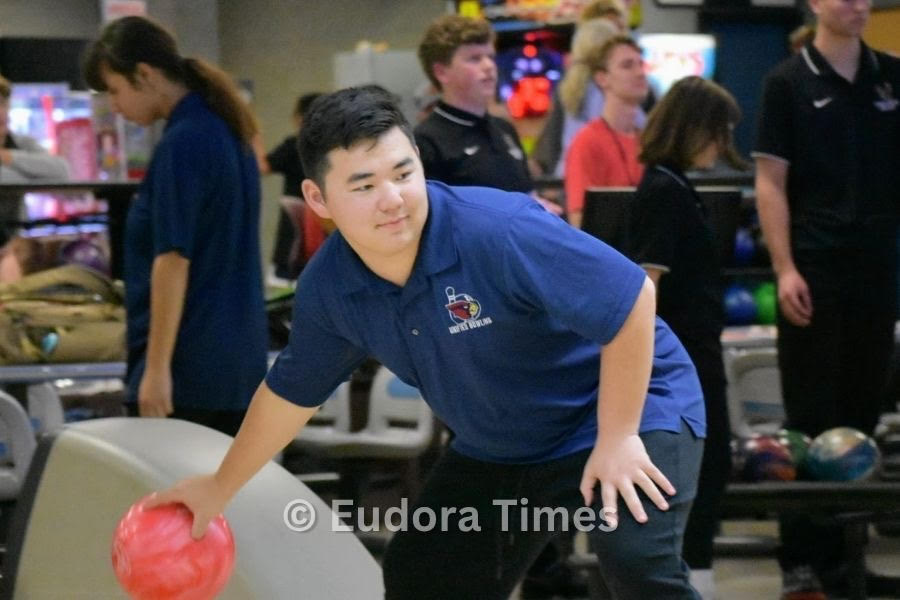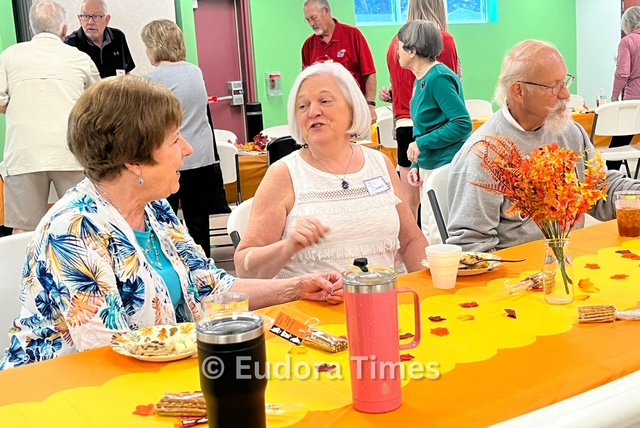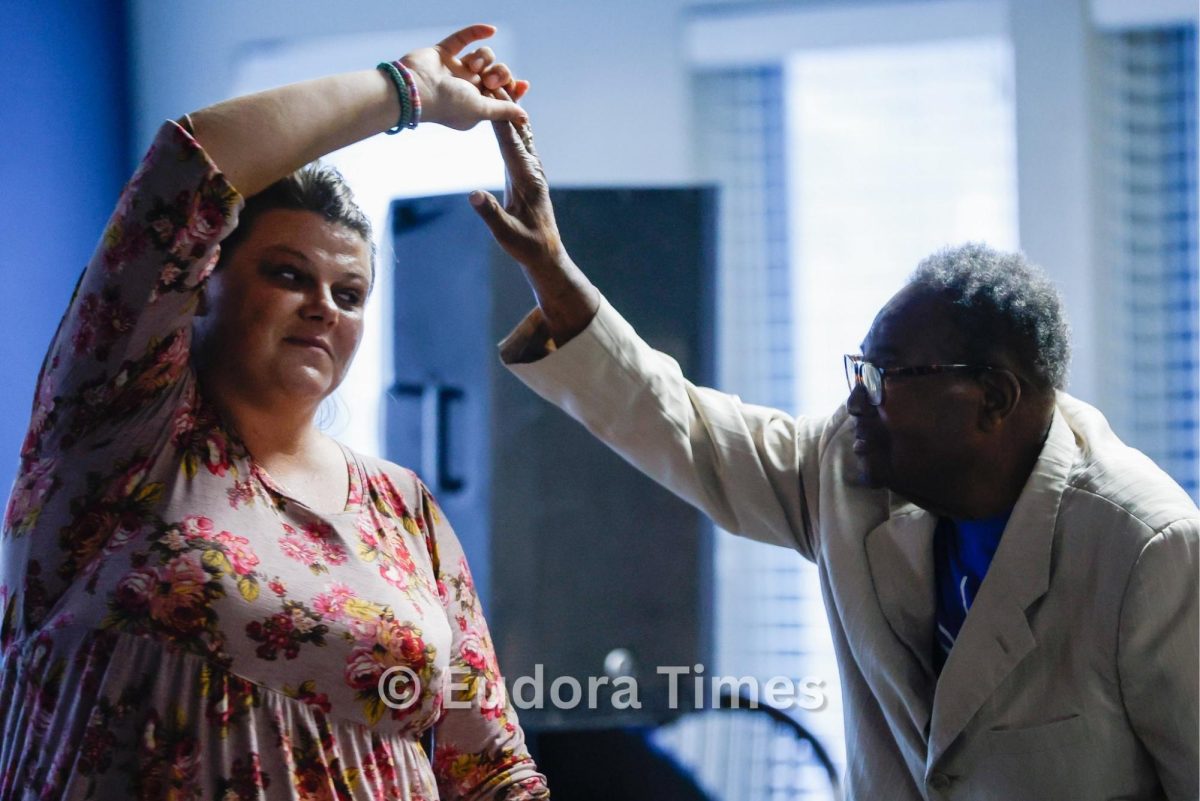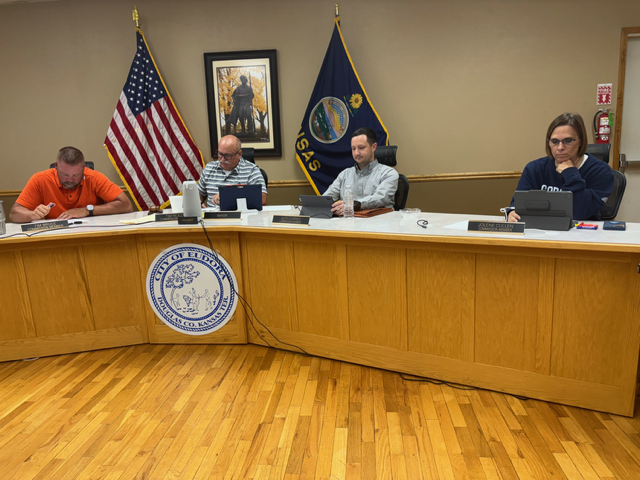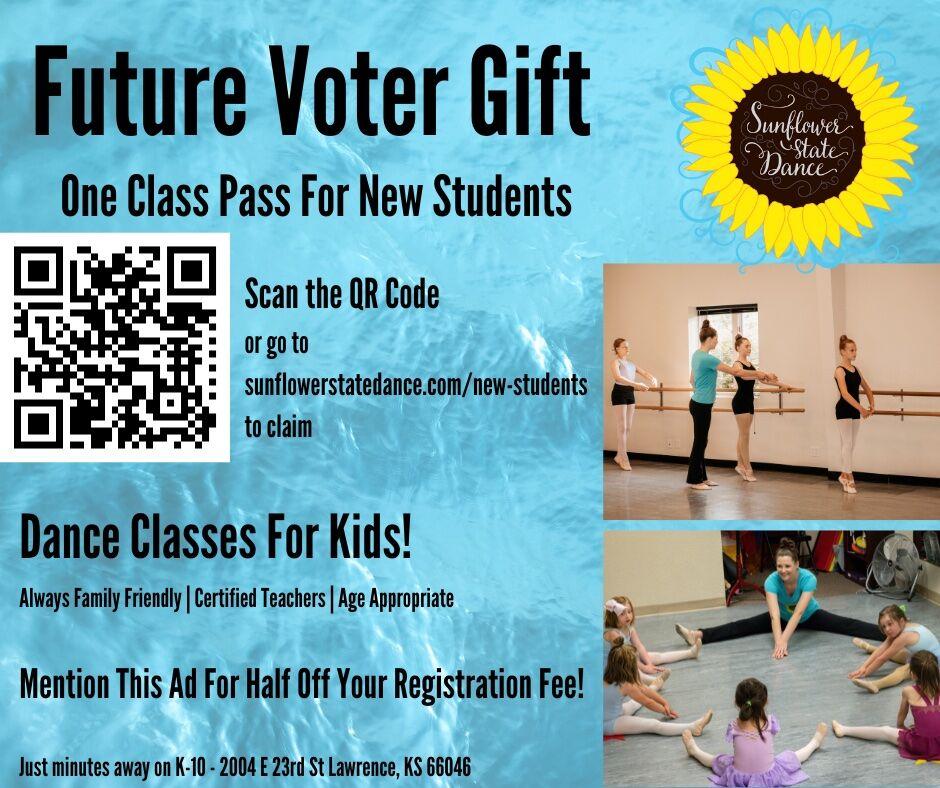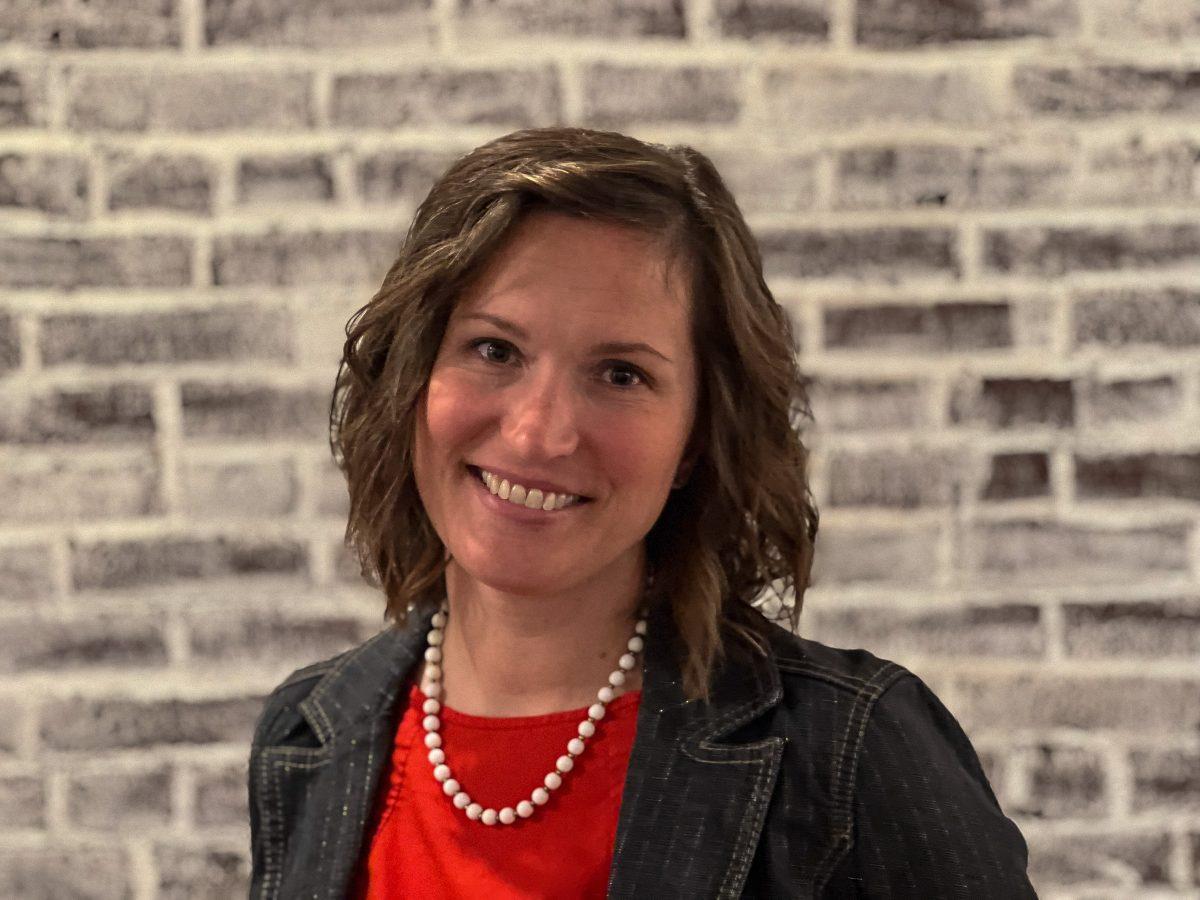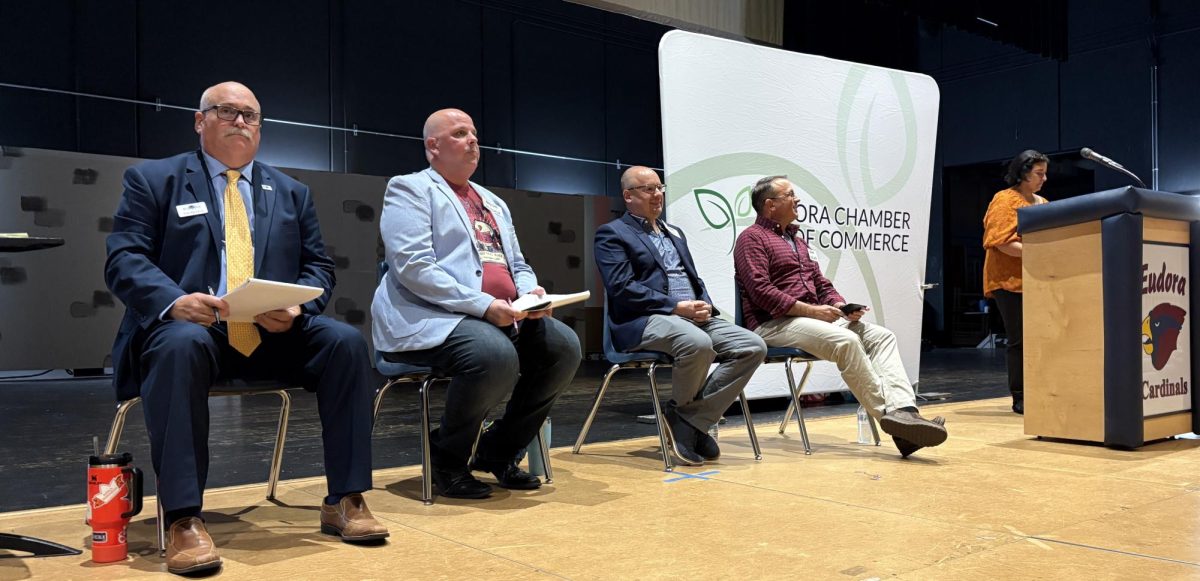This is the ninth story in an 11-part series featuring the candidates for City Commission and School Board. One story will be featured each day between Oct. 8 and Oct. 18.
Becky Plate
Candidate for School Board
Current job
Registered nurse
Current community involvement
I’ve been on the Eudora School Board for about three and a half years. I have served for about two and a half years of that on the interlocal special ed co-op board, as well.
Why are you running for election?
So, I’m really proud of a lot of the things that have gone on in the school district in the last few years. We are really focusing on students’ growth, and I think that any district that is paying attention sort of knows that that work isn’t ever done. You can feel really good about what’s going on and still realize there’s more to do. We have put some things in motion while I’ve been in my first term that I really want to see through to fruition.
The opening of Panasonic will have a big impact on the region. What steps do you think the school board should be taking right now to prepare for that?
Absolutely, we’re already taking them. We are constantly looking at what those growth patterns are, what our different building needs are, and a huge part of that is collaboration with the community. Listening to our educators, listening to our families. We really have to pay attention to what’s going on with the city: Planning Commission, City Commission, those kinds of things. We’re planning a joint meeting with them coming up – I think it’ll be next month if we can all find a common date [Editor’s note: Since this interview took place, it was decided the meeting would be Oct. 11].. So, really collaborating with other parts of the community and recognizing that as the community grows, obviously the needs of the district are going to grow.
When you look back at the bond that just passed, that really was to get us to the place where we need to be now. And we knew that if we don’t get to where we need to be now, there’s no way we’re gonna be ready for that growth. And that growth is still in question, right? It’s gonna happen, but we don’t have a good way of predicting exactly what it will be. We can look at models, we can look at what’s happened in other communities where Panasonic and similar plants have come in.
That’s another thing that worked: we reached out to other communities. In particular, Reno – that’s where the last one had gone in. There were talks with that community, with those leaders and that district about, you know, what were you told was gonna happen or to expect? And then, what actually happened? Because those aren’t always the same thing.
So we can make informed choices and informed measures to try to predict what’s going to happen. At the end of the day, we’ve got to be ready for what’s here right now and for the students who we have right now, because if we aren’t, then we’ll never be ready for that. So, really getting that current bond passed so that we can get everything where it needs to be, so that we’re prepared to expect that later growth, not knowing exactly what that’s gonna be yet. I think that having gone through that process really informs, like, the existing board members are gonna have that experience already with us for when that additional growth does come.
How do you hope to improve the educational experience for students in the district?
So I’m not an educator, right? I’m a nurse. I really lean on the expertise of our educators. We spend a lot of time and a lot of energy as a district monitoring student success. We spend a lot of time, a lot of energy getting that feedback and information from our district leaders, from our teachers, and I think we need to let them, and our families, help guide those decisions.
So, for me, I really lean on our “building needs assessments,” which is a thing that’s monitored by the state, as well as an accountability measure. I think that’s what we really want. What are those district leaders telling us they need in their buildings for the students in their buildings? They know them much better than the board members do. Taking that into account with what our families are telling us that they need. That’s what I lean on with those decisions. My short answer would be I’m not the person that’s going to tell you what we need. I’m going to listen to what we need.
Nationwide, school districts have been struggling to hire and retain teachers. What role do you see for the school board in helping with that issue?
One thing most people don’t realize is that school board members don’t micromanage the day-to-day activities of the district. We are that 10,000-foot view. So, when you talk about, you know, what can we do? We set the budget. Now, that budget is within the constraints of how much money the state, federal and local tax base gives us. So, we set the budget within those designated buckets of money, essentially, and they’re all dispersed out into restricted funds.
So, setting what our budget priorities are is important and employment culture is really important as well. That’s where the school board has a little bit more impact, I think. The reason I say that is that one of the main roles of the school board is to hire and supervise district leadership, in particular the superintendent. And so we set the vision, and then we tried to hire and retain a superintendent who is going to carry out that vision for the district.
We really want this district to have a great employee culture. We’re never going to be the highest-paying district in the area. It’s never going to happen. Fortunately, we’re certainly not the lowest-paying district in the area, either. We’re kind of in the middle of the road. So, having that culture that makes it a place where people want to work, where people want to live, that’s the key. Having great leadership is a big impact on that, and that’s one place where the board has a defined role that is part of our job.
Staff also play a critical role in keeping schools going: bus drivers, janitors, cafeteria workers, secretaries, etc. How do you think the school board can support and retain these employees?
We’re known for our bus drivers. We have a fantastic transportation department. Whenever we’re talking about what pay is gonna be and that kind of thing, we want people to know that we’re not only focusing on teachers. We are looking at paras, bus drivers, food service staff, janitorial staff. Generally speaking, when we’re talking about raises for those folks, that kind of thing, we’re talking about those folks, as well, when we’re talking about pay for those certified educators. Same answer about the other stuff, too. Culture.
I’m sure we’re not the highest paying for bus drivers, either, right? But people want to work here. People want to stay. That department of our district has, again, great leadership. That spreads downward. I think having a culture where people want to be here and the amount of community pride that happens in this town, I mean, people want to be part of the district, and that’s a really good feeling.
With the passing of the bond, there are a lot of changes coming to the schools, especially the high school. What do you think are the greatest needs in the district as it relates to infrastructure?
This is another one where I say, like, I didn’t come up with this. One thing I feel like our district does a really good job of is getting that input from the community. Deciding what was going to be included in the bond was a huge endeavor. There were many meetings that involved not just the district leadership, not just board members – in fact, I wasn’t on that committee – but it was board, leadership, teachers, families, other parts of the community, all coming together to narrow down what those priorities were, what those needs were that were the most urgent because this isn’t growing our buildings because we’re doubling in students with Panasonic, if that were to happen. This is getting us where we need to be right now and some of those needs are really important. So, trying to prioritize those was an enormous task. So, really listening to that community that told us what they needed.
At the high school, you know, we’re really excited that we’re going to have that shelter, we’re gonna have that extra gym space that is gonna give us the space for sheltering in place for severe weather. I remember many, many, years ago, when I very first started really paying attention and going to board meetings – probably four or five years before I even ran to be on the board – I remember talking to Cara Kimberlin, and I remember asking her like, “If you had a wish list of stuff you feel like the district really needs, what would be on it?” And that was the first thing on her list. She said, “If I had my moonshot, it would be another gym.” So, I’m thrilled that we can make that happen now because the need is absolutely there with the growth we’ve seen in that time since I had that conversation with her. Being able to connect those buildings is gonna be huge.
I’m a very safety-focused, safety-conscious person, but it always bothered me that my kids had to go outside to get into another building for classes. I think that’s gonna be really exciting in the high school. I’m excited about the playground stuff at the elementary school. We just need so much more. If you’ve ever seen those students out there, there’s just a lot of little bodies out there having a great time, but if you see them all out there, there’s clearly not enough equipment.
Again, that can create safety issues, too. It makes recess scheduling hard for the teachers, as well. In the middle school, again, huge on safety. Having that improved entrance that’s going to be more secure and going to create a better workspace, as well, I think that’s gonna be really amazing.
What would you like to see from the Legislature to provide better support for K-12 education?
This is an easy one: fully fund special education to the statutory 92%, end of story. That is – if you ask me one thing that would make a difference for all of our students – that’s the key. Another thing some people don’t realize is that shortfall doesn’t just impact special education students. That shortfall comes out of our general operating budget. So that shortfall affects all students, it affects all of our educators because that money has to come out of the district when it shouldn’t be.
So, that is the No. 1 thing that they could do, still. They have fully funded general education but getting to that statutory 92% on special education would keep us from having to divert that gap in money that’s in between there. Actually, we went from getting closer to it last year but, I think, this year’s funding actually dropped a couple of percentage points so we’re just going the wrong way with that. We need to get to that statutory funding level for special education.
What is the district’s greatest strength?
Our educators. I mean, we have such a great group of educators in this community. They care so much about these students. When we see that student success, I mean, that speaks to what a great group of folks [is] working in the classrooms with them. When I say educators, I don’t necessarily mean certified teachers, you know, like we talked about before, like, from the first person those kids see in the morning, maybe getting on the bus, saying hello to their bus driver to the lunch server that always has a fist bump for them to their classroom teacher – all of those folks, to me, are their educators. If you are part of that child’s growth, you are an educator. That group of people that spends their day with these kids in this community, they are just absolutely something to be proud of.
What about the biggest challenges for the district?
I think that anytime you have a group, an organization, that has such a large group of stakeholders, communication is always the hardest thing. I don’t say that because I think we don’t do it well. I think we have made huge strides in communications over the last few years. But I think that is always going to be the biggest challenge. Just because we have such a large and diverse group of stakeholders, trying to find ways to meet all of those stakeholders where they are is always hard. When I say, you know, we’ve done great work, but there’s always more work to do, that would be a great example of something I feel like we can always do better.
Anything else you’d like to add?
Just I really love this district. My kids went all the way from pre-school to graduating here. I feel like this is my way of giving back to the district that took such great care of my kids. I really would love to continue serving in this role. I feel like I was pretty well-informed coming into being on the board. But, wow, I feel like I have just grown so much. I’ve learned so much from our families, from the teachers in the district, from the students in the district, from our leadership, from my fellow board members.
I mean, kind of all of them have become like sort of mentors, you know, especially in those leadership roles. I just feel like I have learned so much and feel like I’m just getting started, right? I can’t believe the first term is already coming to a close because I feel like I just really know what I’m doing now and enough to where I want to keep doing it. I feel like I still have a service to offer to the district, and I really want to work, especially with the bond – I should say the capital improvement campaign.
The process of taking those tax dollars that our patrons have entrusted us with and putting them to good use, putting them to uses they were intended for. You know, trying to be the best stewards we can for those tax dollars. I feel like that’s something I want to be there for. We started this process. We got this ball rolling, I want to take that across the finish line. Just continuing to take that community input and watch it all happen. I’m just excited to be here for it.
If you appreciate our coverage, please donate. Our newspaper depends on your donations to provide coverage of Eudora and continue providing local news.
To donate to support our community journalism, please go to this link.
